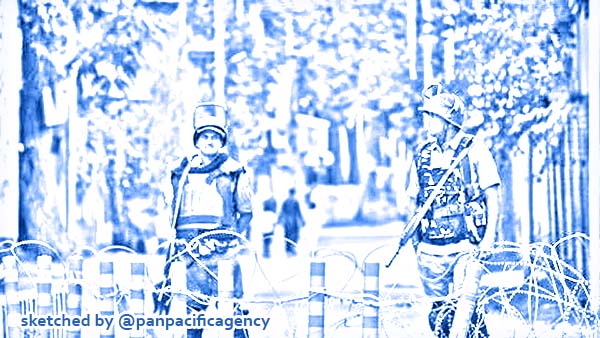UN Security Council to hold rare meet on Kashmir today, first in 54 years

Friday’s discussion is not considered a full security meeting but rather referred to as closed door consultations, which are becoming increasingly more common, diplomats said. (PTI) Sketched by the Pan Pacific Agency.
UN, Aug 16, 2019, Hindustan Times. The United Nations Security Council is scheduled to hold a rare meeting on Kashmir after India stripped the region of its autonomy, sparking a row with Pakistan, diplomats told AFP Thursday, reported the Hindustan Times.
The meeting will take place behind closed doors on Friday morning, the diplomats said.
Poland, which currently holds the council’s rotating presidency, has listed the matter for discussion at 10:00 am (1930 IST), the diplomats added.
It is extremely rare for the Security Council to discuss Kashmir, which has been divided between India and Pakistan since independence from Britain in 1947.
The last time there was a full Security Council meeting on the Himalayan region was in 1965.
Friday’s discussion is not considered a full security meeting but rather referred to as closed door consultations, which are becoming increasingly more common, diplomats said.
A day later, New Delhi scrapped Article 370 that had granted Kashmir special autonomy, splitting the state of Jammu and Kashmir in two and changing their status to union territories.
In a speech marking India’s Independence Day Thursday Prime Minister Narendra Modi said the decision was one of several “path-breaking” moves by his newly re-elected administration.
He said “fresh thinking” was needed after seven decades of failure to ensure harmony in the picturesque but tragic former kingdom, where tens of thousands have died in the past 30 years.
Pakistan observed “Black Day” on Thursday to coincide with India’s independence day celebrations.
Pakistan Prime Minister Imran Khan, who has warned of possible “ethnic cleansing” in Kashmir, replaced his Twitter profile photo with a black circle.